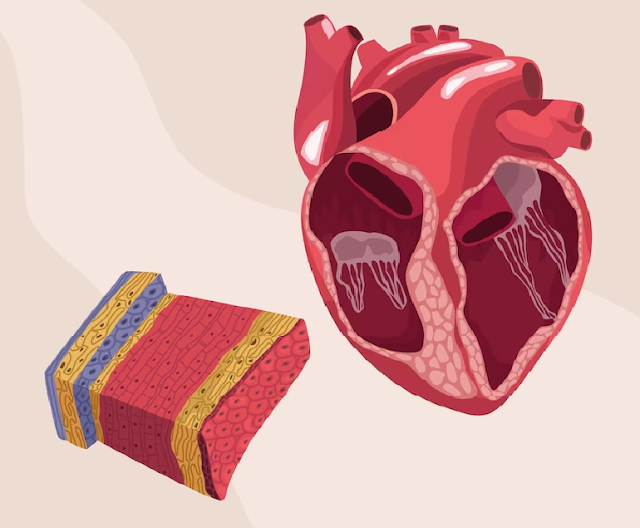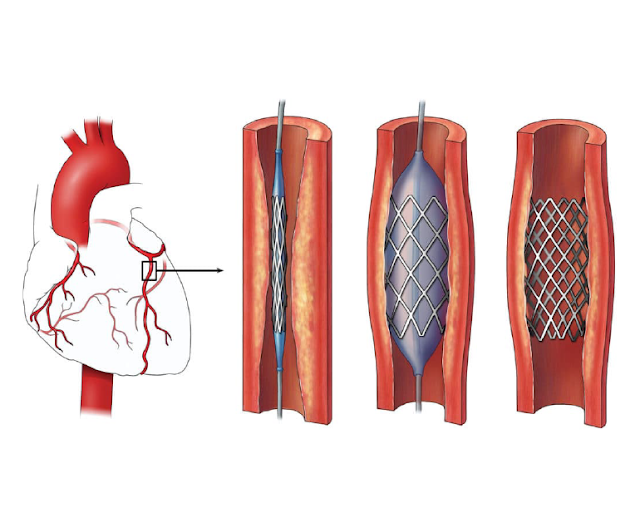(Dr Ramji Mehrotra) What are Inherited Cardiac Conditions?
Inherited cardiac conditions are a group of cardiovascular disorders that are caused by genetic mutations or abnormalities passed down from parents to their children. These conditions can affect the structure or function of the heart and may occur at various stages of life, from infancy to adulthood. Understanding the nature of inherited cardiac conditions is crucial for early detection, proper management, and preventive measures.
One prominent example of an inherited cardiac condition is hypertrophic cardiomyopathy (HCM). HCM is characterized by the thickening of the heart muscle, particularly in the left ventricle. This abnormal thickening can disrupt the heart's pumping ability and lead to symptoms such as chest pain, shortness of breath, and palpitations. In some cases, HCM can cause sudden cardiac arrest, especially during intense physical activity.
According to Dr. Ramji Mehrotra, leading cardiac surgeon in NCR region, genetic mutations in genes responsible for the structure of cardiac muscle proteins are often associated with HCM. Diagnosis typically involves a combination of clinical evaluation, imaging tests like echocardiography, and genetic testing to identify specific mutations. Management may include medications to alleviate symptoms, lifestyle modifications, and, in severe cases, surgical interventions.
Another inherited cardiac condition is Long QT syndrome (LQTS), which affects the electrical system of the heart. Individuals with LQTS have an abnormality in the ion channels responsible for regulating the heart's electrical activity. This can lead to irregular and potentially life-threatening arrhythmias, including a specific type known as Torsades de Pointes.
Symptoms of LQTS may include fainting, seizures, and sudden cardiac arrest. Genetic testing can identify mutations associated with LQTS, and electrocardiograms (ECGs) are used to evaluate the heart's electrical activity. Treatment typically involves medications to prevent arrhythmias, lifestyle modifications, and the avoidance of certain medications that can prolong the QT interval.
Arrhythmogenic right ventricular cardiomyopathy (ARVC) is an inherited cardiac condition that affects the structure and function of the heart's right ventricle. In ARVC, the normal muscle tissue in the right ventricle is progressively replaced by fatty or fibrous tissue, leading to abnormal heart rhythms and, in some cases, heart failure. Genetic mutations involving proteins responsible for maintaining the structural integrity of heart cells are often associated with ARVC. Diagnosis may involve a combination of clinical evaluation, imaging tests like cardiac MRI, and genetic testing. Treatment typically focuses on managing arrhythmias, preventing sudden cardiac death, and addressing heart failure symptoms through medications, implantable devices like defibrillators, and lifestyle modifications.
Marfan syndrome is an inherited connective tissue disorder that can also affect the cardiovascular system. It is caused by mutations in the FBN1 gene, which leads to abnormalities in the production of the protein fibrillin-1. Fibrillin-1 is a crucial component of connective tissue that provides strength and elasticity to various structures, including the heart's valves and aorta.
In individuals with Marfan syndrome, the aorta can be weakened and dilated, increasing the risk of aortic dissection or rupture. Diagnosis involves clinical evaluation, imaging tests like echocardiography, and genetic testing to confirm the presence of FBN1 mutations. Treatment may include medications to manage symptoms, regular monitoring of the aorta's size, and surgical interventions to repair or replace the affected valves or aorta if necessary.
Dr. RamjiMehrotra says that understanding the genetic basis of inherited cardiac conditions, along with appropriate diagnostic strategies and management approaches, is crucial for early detection, prevention of complications, and optimal care.


Comments
Post a Comment